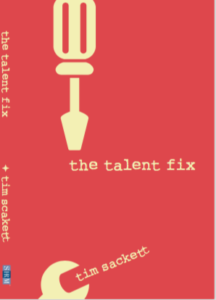I know you’ve seen this on resumes and profiles over the past few years! Someone is looking for work and they title their profile “In Transition”.
Quick – without taking five seconds to think about, be honest, what do you think when someone says, “In Transition” on their resume, cover letter, LI profile, etc.? Put it in the comments!
My guess is, like me, it’s not positive. If it’s not positive, you should remove it from your profiles immediately!
When I read “In Transition” my immediate thought is “why are you in transition? Must not be good! No one wants to be in ‘transition’!” A ‘transition’ can mean many things when it comes to your career. Some of those are positive, but I think the collective will see most of the reasons as negative.
I think the reason I read “In Transition” in a negative light when it comes to talking about careers, is that for me it makes me believe you don’t really know what you want. I’m not ‘in transition’, I’m making a change and this is exactly what I’m looking to do.
Reason’s you might be ‘transitioning’ in your career and now you are looking for another job:
Potential reasons for transitioning:
- Retirement from your current role (which many will take as a negative because of age bias)
- Completely switching careers (could be a positive, if you’re willing to start at entry level income for the career you’re choosing to go into)
- You got fired
- You got laid off/company closed
- You had your own business, that has ended, now you’re finding your next gig
- You took a leave of absence for personal reasons (FMLA, went back to school, child rearing, aging parent, etc.)
So, I’m on record saying that using the phrase, “In Transition” isn’t good for someone seeking a job.
The bigger question than becomes is there a good phrase for people who are out of job and want to get a job that TA pros won’t immediately believe is negative?
I’m not sure there is one, especially if the real reason you’re transitioning is negative! That seems obvious, but you would be shocked at how many messages I get from people ‘in transition’ that are wanting my advice on how to say ‘positively’ they were fired.
My advice is usually to tell the best version of the truth you can come up with, and try to back up that version of the truth is a lot of people who will give you a positive work reference. Ideally, from the place you just left, even if that last job ended in a termination for performance.
What experienced TA pros and hiring managers realize is that not every termination is really do to actual poor performance. Sometimes it’s just a simple personality conflict between the manager you worked for and yourself. That isn’t great, but it’s better than you just couldn’t do the job!
Here are some phrases I might use instead of “In Transition” –
– “I quit my last position because…”
– “I retired from my last position and I’m looking to work “X” number of years in “X” type of position…”
– “I haven’t worked in “X time” because…, and I’m looking for…”
– “I got laid off from my last position…” (This one seems easy, except so many people now use this when they were the only person laid off, but everyone else kept their jobs! That’s not a layoff, that’s just a nice way to get fired! So, you better be able to back this up because great TA pros will find out the truth!)
– “I started my own business. It failed (or it succeeded or I decided it wasn’t for me). I’ve got the entrepreneurial bug out of me and I want to help an organization succeed in the following way…”
So, what do you think TA leaders and pros? Does “In Transition” scare you off of a candidate?
The Talent Fix – My new book is now available to purchase! If your organization is having trouble hiring, this is a must buy!
Talent Fix Review: My mom says it’s her favorite book that I’ve written!!! (I’ve only written one book!)



